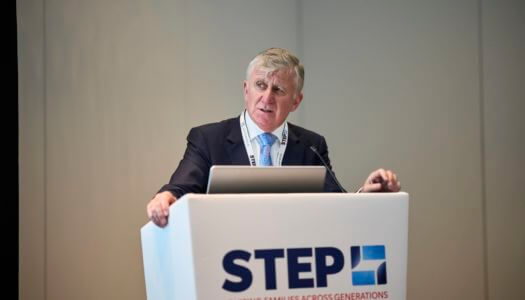International finance centres (IFCs) like Jersey have a crucial role to play in accelerating the pace and scale of the financing of global sustainable development objectives, according to a new report published by Jersey Finance.
The paper, ‘Financing a Better World: The Role of IFCs in Achieving the SDGs’, was published recently by Jersey Finance in collaboration with PwC and explores progress in meeting the UN’s Sustainable Development Goals (SDGs) and how businesses are approaching them.
Launched in 2015, the 17 United Nations (UN) Sustainable Development Goals create a common language between governments and business. However, highlighting that 2023 marked the half-way point towards the 2030 target date for the SDGs, the new report points to a stocktake undertaken by the UN in 2023 which showed that progress towards more than 50% of its targets was weak and has stalled or reversed on another 30%.
In particular, the report identifies why the SDGs are important to IFCs and the role IFCs like Jersey can play in addressing them. Pointing to the UN’s latest estimate of investment needed to meet the SDG targets of US$4 trillion, the report argues that the vast majority of investment and financing will need to come through private capital, suggesting a key role for those IFCs that facilitate cross-border investment.
Taking a dive into Jersey’s main financial services sectors specifically, the report identifies the extent to which Jersey’s finance industry is facilitating capital towards achievement of the SDGs, drawing on real-life case studies, finding that:
- As of June 2022, more than 729 Jersey-domiciled funds are managed by UN Principles for Responsible Investing (UN PRI) signatories, with an AuM of over USD 257 billion;
- 78% of all private equity and venture capital investments reviewed were found to contribute significantly towards SDG 13 – Climate Action;
- Analysis of Jersey trusts showed more than 50% holding assets that contribute towards SDG 1 – No Poverty and over 40% holding assets that contribute to SDG 8 – Decent Work and Economic Growth. SDG 10 – Reduced Inequalities and SDG 16 – Peace, Justice and Strong Institutions;
- The combined market value of admissions to TISE Sustainable, together with listings on the main TISE Segment that have sustainable activities, are estimated to total more than £14 billion at the end of June 2023.
The report also suggests that IFCs can contribute more than facilitating investment, finding that they can also enable global collaboration, support innovation and technology, promote financial inclusion, and develop new financing solutions.
Commenting on the report, Joe Moynihan, CEO, Jersey Finance, said: “Achieving the SDGs by the target date of 2030 is a significant challenge. Progress has been hampered by economic headwinds, the COVID-19 pandemic and geopolitical forces. There’s no doubt that urgent action is required both politically and, critically, by the private sector through new collaborations and innovations in technology, resources and knowledge, as well as investment and financing.
“As this report suggests, these are all areas where IFCs can play a key role, and we believe that Jersey has both the capability and the ambition to play its part. We hope that this report inspires conversations and actions across Jersey’s finance industry and beyond, so that together we can finance a better world.”
The publication of the report follows on from the launch last year of a ‘UN SDG Alignment Tool’ developed by Jersey Finance to provide a means for financial services firms in Jersey to analyse which SDGs are most relevant to them and support their actions.
Tom McKenna, Sustainable Finance Lead at Jersey Finance, added: “As a member of the UN Financial Centres for Sustainability (FC4S) Network, we believe that there is a vital role for jurisdictions such as ours to play in financing the achievement of the SDGs. This report illustrates that Jersey already has numerous compelling examples of this, from sustainable and transition funds through to impact-led private wealth management. But we need to do more – from helping to scale innovative financing for nature restoration to financial inclusion, for example, to growing sustainable finance technology solutions.”
The full report can be found below, while more on Jersey Finance’s sustainable finance proposition can be found here.






